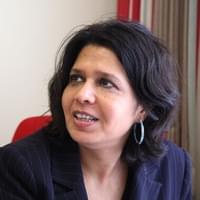
Hungary: beyond the mass hysteria
Chuka Umunna and his supporters should look beyond The Guardian headlines and instead to life on the ground in Hungary, says David Hardy. Beyond the mass left-wing hysteria, there are lessons we can learn from the portrayed 'far-right' autocracy of Orban's government.
Viktor Orban's victory in the recent Hungarian elections has not pleased everyone. After Boris Johnson had sent his congratulations as etiquette demands, Labour MP Chuka Umunna castigated the Foreign Secretary for validating what he termed Mr Orban's "far right" administration. What Mr Umunna means by 'far right' is, however, anyone's guess. It is not entirely clear he knows himself.
The BBC, in particular, was inconsolable. Despite strong indications that Mr Orban's Fidesz party were set for victory, Britain's 'impartial' national broadcaster was hoping and praying for a political upset. In the lead up to the vote, its correspondents had been breathlessly announcing that higher turnout could prove decisive for Orban's opponents. It didn't happen. Despite high turnout, Orban won a landslide victory.
Impotent in the face of democracy the BBC resorted to ad hominem attacks. Not for the first time, the BBC and Chuka Umunna were singing – howling – from the same hymn sheet, broadcaster and politician seemingly unable to stomach the result of yet another democratic vote which had failed to meet their expectations. While Umunna resorted to the tried and tested 'far right' smear, the BBC weighed in with an article entitled 'The man who thinks Europe has been invaded.'
The title alone is classic BBC, inviting readers to view Orban as deluded, paranoid, certainly suffering from some sort of psychosis, because as everybody knows Europe has not been invaded. It's all in Mr Orban's mind. Statistics, however, paint a more nuanced picture.
According to Europa.eu, some 4.3 million migrants entered Europe in 2016 alone. Note that these are the official statistics, the actual number is likely to be substantially higher. Indeed, the sheer weight of numbers entering Europe is reflected in the number of applications for EU citizenship which rose by 18 per cent from 2015-2016.
According to a leaked report in Germany's Bild newspaper, a further 6.6 million migrants were waiting to enter the continent in 2017. Total migrant arrivals for 2016 and 2017 are thus roughly equivalent to the population of Belgium. Whether we wish to call this phenomenon an invasion or not, something is clearly happening.
'Critics attack him as a racist and an authoritarian,' so goes the sub-heading in the BBC article. At least one such 'critic' also claims that Hungary now has a 'far right' administration. Yet the people of Hungary saw fit to elect this despot for a third consecutive term, and with an increased majority…
Someone has got this situation wrong, very badly wrong. But is it the majority of the Hungarian electorate who actually experience life in Umunna's imagined fascist dictatorship for themselves? Or is it perhaps far-away Britain's Islington set in the shape of a Labour MP and a state broadcaster both of whom coincidentally wish to overturn the vote of the EU Referendum? Who to believe: Democratic Hungarians or anti-Democratic pro-EU ideologues? Just who are the real 'authoritarians' here?
The article goes on to quote a statement of Mr Orban's which, in typical BBC fashion, the writer presumes is self-evidently wrong:
– We do not want to see significantly sized minorities
– With different cultural characteristics and backgrounds among us.
– We want to keep Hungary as Hungary.
In the Umunna-BBC worldview sentiments such as these are the lingua franca of the extremist. That Orban makes a clear distinction between 'significant sized minorities' and what is sometimes termed elite migration – that is controlled migration of highly skilled workers – is immaterial. Nothing short of social engineering on a grand scale satisfies the EU ideologue.
Why has Hungary reached such a catastrophic state of affairs, one where democracy prevails? The writer of 'The man who thinks Europe has been invaded' thinks he knows: 'Hungary was deprived,' in her past history the article tells us 'of her multicultural communities – the many Romanians, Slovaks, Serbs, Croats and Ruthenians who had previously lived side-by-side with Hungarians.'
These 'multicultural communities' were comprised in fact of Hungary's near neighbours who were thus easily assimilated into a culture that was far from alien. In other words, we are talking about 'communities' with historically close ties to Hungary, sharing not least geographical and cultural proximity. 'Multicultural' is nothing if not an eccentric way therefore to describe a situation whereby people who shared the same east Slavic ethnicity, religion, dialects and traditions lived under the same roof. (Hungary shares borders with Romania, Slovakia, Serbia and Croatia as well as Ukraine and Austria.)
This is equivalent to saying that Switzerland is 'multi-cultural' because of overlaps with Germany, Italy and France. Nonetheless, in order to prosecute its anti-Orban agenda, the broadcaster is determined to conflate entirely different geopolitical realities even if it means deliberately shifting the multi-cultural goalposts.
So, why would Britain's politically neutral national broadcaster have a dog in this particular fight? Why is the BBC so rattled by Mr Orban's success? The reasons are multitudinous. While contempt for any country where Conservatism and Christianity allied to democracy play any kind of role is highly antithetical to the BBC 'progressive' mindset, the reason for its sustained attack on the democratically elected leader is first and foremost about perception.
It comes down to juxtaposition: As the social cohesion of those parts of Europe which have adopted multi-culturalism starts to break down, Mr Orban's Hungary and his Visegrad allies shine a very bright and uncomfortable light on the West's disastrous multicultural experiment.
Briefly, social capital is the delicate interplay between the environment, resources within it and the community (stakeholders) who utilise these resources. In societies with high social capital, these relationships are more stable and fruitful. Take the very simple example of litter. In societies where social capital is high, where there are more shared values, litter is likely to be less problematical than in societies with low social capital.
Writing in The Diversity Illusion, Ed West argues that societies with high levels of diversity – Brazil, USA, Honduras, Sierra Leone – have lower levels of social capital than societies which are largely monoethnic e.g. Japan, South Korea etc. The result of low social capital is a higher crime rate. Society is less stable.
Societies in which there is less shared culture, tradition and values West argues find themselves in precarious positions:
"A state without a nation, a patch of land, a patch of land inhabited by people with nothing in common except that they share the same geographic coordinates, may function up to a point, but some level of coercion will be needed to keep this society together. Indeed this is what diversity is bringing."
Currently, the murder rate in multicultural London is running higher than New York. Two murders on the weekend just gone has brought the total of homicides since the New Year to a shocking total of 59. The capital increasingly fits the model of an urban area with low social capital. Witness the number of attacks on citizens by acid or by knife. Just as West predicts, the response from the Home Office has been to increase the number of armed police officers patrolling the capital's streets. Since 2016 London has witnessed a 50 per cent increase in armed officers.
Over on the continent, once seen only in emergencies, armed police officers are a regular presence at French tourist attractions, German Christmas markets, airports and many more public spaces. As the ghettoization of parts of London, Paris and Stockholm continues, meanwhile in Budapest, Warsaw and Prague life goes on much as it always has. Social capital is particularly high in Hungary, Poland and the Czech Republic.
Certainly, the chance of attack from acid or knife attack in Orban's Budapest – multi-cultural 'deprivation' notwithstanding – is negligible. Such is not the case in Sadiq Khan's London. Similarly, the chances of being caught up in a grenade attack in Budapest is negligible. Such is not the case in Malmo or Stockholm.
BBC anxiety and hostility thus becomes entirely explicable. The last thing the BBC (and Umunna) want is a model of Eastern Europe that is stable, peaceful and harmonious, not when the comparison to Western Europe is so stark and is set to become even starker.
'I am in blood stepped in so far that should I wade no more, returning were as tedious as go o'er.' Macbeth's abject declaration is that of a weary man, one who realises the futility of trying to turn the clock back. Having set in motion a chain of events that have resulted in death and destruction, Shakespeare's tragic hero realises he must continue to the bitter end. Too much blood has been spilt. Such is the case with Europe's media and political establishment and their multicultural experiment.
Viktor Orban's Hungary thus serves as an inconvenient reminder of a socially cohesive society, one that the media and political establishment have tried so hard to disrupt. Warsaw, Budapest, Prague, the comparisons between east and Western Europe are there for all to see, though Chuka Umunna and his BBC allies would very much prefer this not to be the case. People might start asking who is responsible for the calamity unfolding daily on the streets of London and elsewhere. They might start pointing fingers.
Potentially awkward questions might arise: where would you prefer to bring up your children, in Viktor Orban's 'far-right' Budapest, a city of relative peace, stability and tranquillity, a city where armed police are a rarity, or Chuka Umunna's multi-cultural London, a place of terror and knife attacks, muggings and gang-crime, a city where armed police are not only common, but a necessity that will only increase as Britain's political class realises just how far it is in blood steeped.











